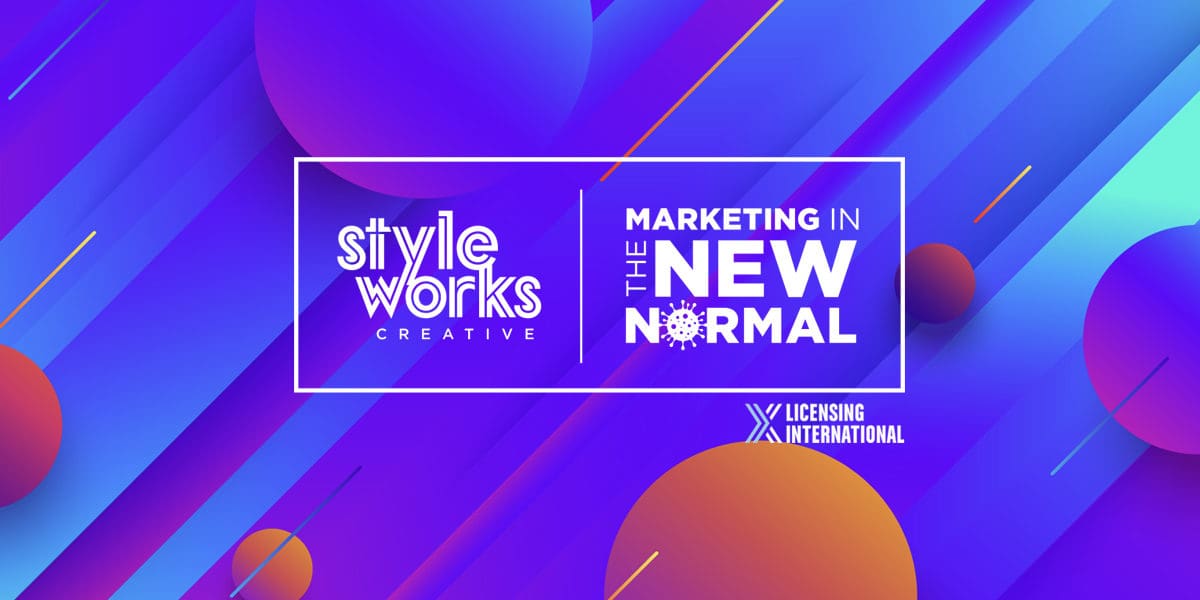Adapted from Marketing in the New Normal, a seminar at 2020 Licensing Week Virtual.
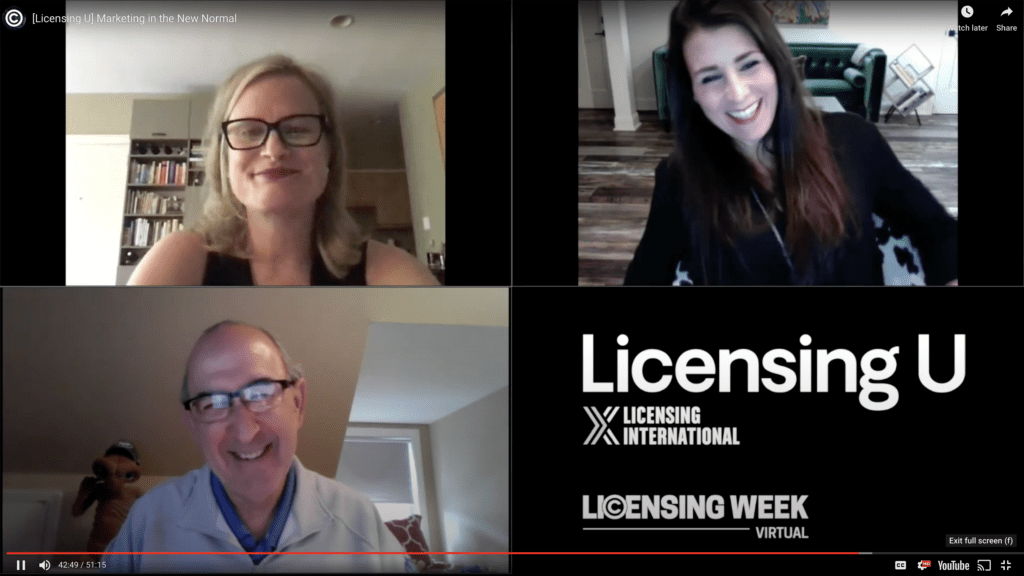
At StyleWorks, our main objective is to provide design tools and creative content geared specifically towards the licensing industry. While a lot of creative agencies can achieve beautiful images and campaigns, many fail to understand the art of the sale and how to project forward-thinking marketing strategies for product development and brand extension.
New Strategies for Marketing Your Brand
Right now, one of the major hurdles for our industry is that we’re mostly very social, sales-driven people. A big part of what brings brand partnerships to fruition is the way they are presented.
We’re used to in-person meetings, using our personalities and social abilities to share our brands and products. Now that way of doing business has been interrupted. Not only are we in separate locations, but we’re stuck with the impersonality of having a cold computer screen in between us and the people we’re trying to connect with. It’s time to rethink some of our strategies.

Short-Term Strategies to Consider
1. Reprioritize
Do you have any creative assets that have been collecting dust? Now, while we’re still in this adjustment period, is a good time to reevaluate, reorganize, and tidy up any loose ends.
2. Repurpose
For existing brands, do you have any creative materials that can be revitalized or reworked for a new audience? Are there art assets or collections pitched or used in the past that are now more relevant and can take on a new light? It’s time to look at those archives and get creative.
3. Become Essential
Can your brand or property authentically contribute to society in a positive way? For many, that means figuring out what your customers need right now. Do you have the means to provide essential products like masks or disposable gowns made from hypoallergenic materials? This can be relevant to children’s properties, which often provide back-to-school products and others outside the toy category. If you’re a licensee, do you have the manufacturing capabilities to move quickly into new product lines? Can you meet the standards and criteria for those products?
4. Add a Little Joy
Are there existing categories that have only become more valued over the last few months? For example, cooking products and services, home improvement, gardening, at-home fitness or mental wellness. Concentrate on those areas and find unique ways to deliver those products and services to consumers. It’s time for market research and to ask questions like “What are families doing together?” For many of us, it’s games and puzzles. Is there a way to promote a safe getaway, say, through camping gear? Can you provide loungewear, calming crafts, even wine and spirits?
Planning for 2021 and Beyond

A few of our clients have decided that this year is pretty much a wash. We’ve heard repeatedly about a focus on 2021 and beyond. One of the first things to consider when planning for the future is how deals will be made in the new work environment. Now that you’re out of your element, what do you need to stay relevant in this industry and effectively seal the deal?
1. Smart, Targeted Product Presentations
If budgets have been cut, then use your money wisely on deliverables with purpose. More designed and targeted presentations can help focus your meetings with specific partners. Paint a picture of the brand collaboration in just a few slides; make it come alive visually. The better and more precisely you showcase your pitch, the better your chances of a partnership.
2. Forward-Thinking Style Guides
If you do still have the budget to create style guides and art collections, be sure to invest in a creative partner that uses fashion forecasting services to help you navigate trends for 2021 and beyond.
3. Branded Subscription Boxes
While initially some subscription boxes suffered during the pandemic, especially fashion-based, there has been an uptick in beauty and food-related boxes for adults, even more opportunity when providing subscription boxes for kids. With the lack of retail available, consumers are looking for a way to find new products safely and bring a sense of joy into their lives. Subscription boxes provide a special branded experience right at your customer’s home.
4. Websites for Licensing
Digital marketing is more important than ever. While brands and retailers continue building their online presence and e-commerce, our industry should also be thinking about how to utilize the internet as a business-to-business selling tool. More and more over the last five years, we’ve been tasked with creating specialized brand vision presentations for our clients. Some of these are quite robust, showcasing full retail renderings and proposed opportunities for established brands. Others are more of an introduction to a new property, a way to create awareness. These are used as an initial selling tool for finding partners.
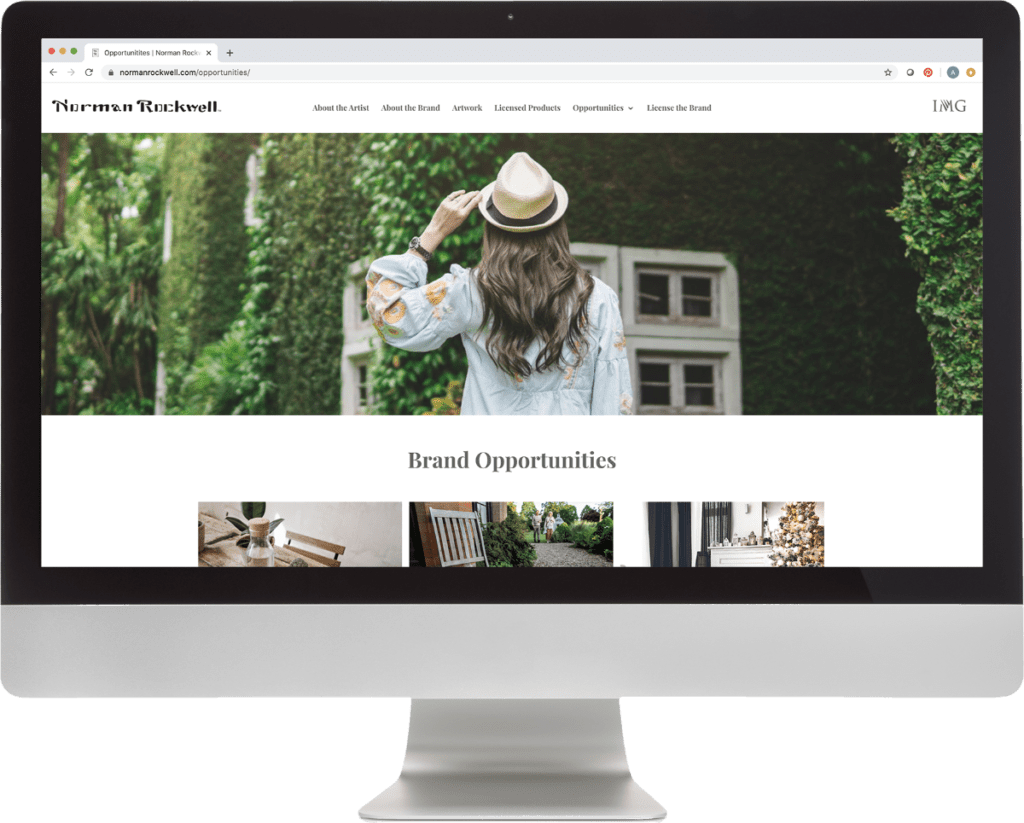
Before, these presentations were commonly used in face-to-face settings, where people could rely on their ability to pitch a new partnership. But in the absence of in-person meetings, we need to adapt to the new ways of marketing in order for our brands to continue to grow. What if you could use a website designed specifically for licensing as your selling tool?
With a website, you can create a controlled brand environment, one that can be customized based on the particular needs of a brand. They can be inexpensive to develop, using Divi for WordPress or Squarespace and the right design partner. They can grow to include password-protected areas for creative assets and custom presentations or even link directly to e-commerce. Social media and email marketing tools can also be tied in to broaden brand awareness for potential partners.
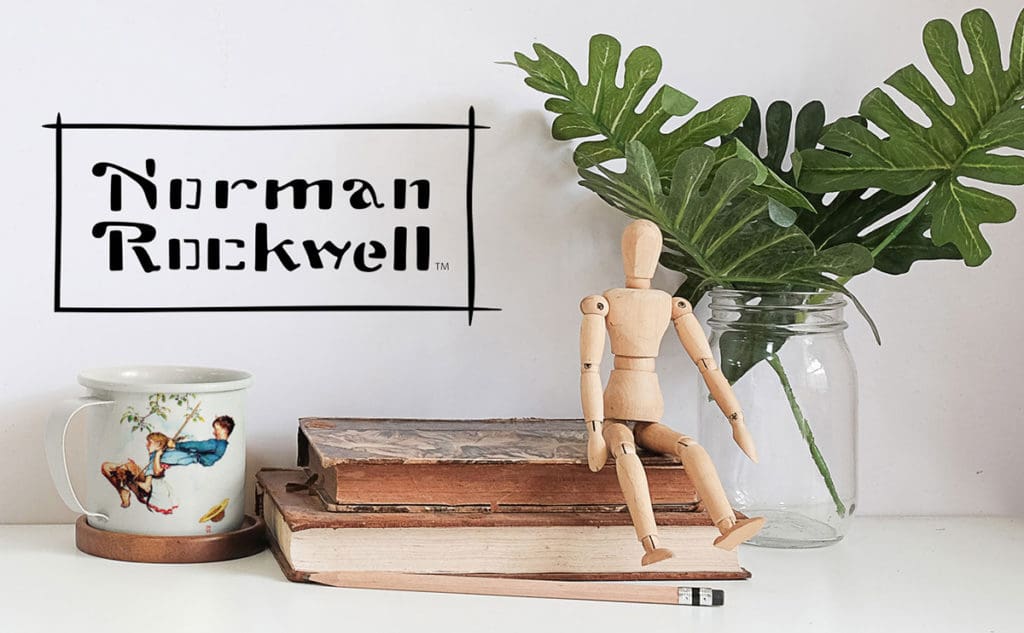
Recently, we collaborated with IMG Licensing to create a brand vision for Norman Rockwell. While many are familiar with the artist and his paintings, IMG wanted to create a more contemporary brand that could be extended to a wide variety of categories, ranging from consumer foods to home décor — even financial services.
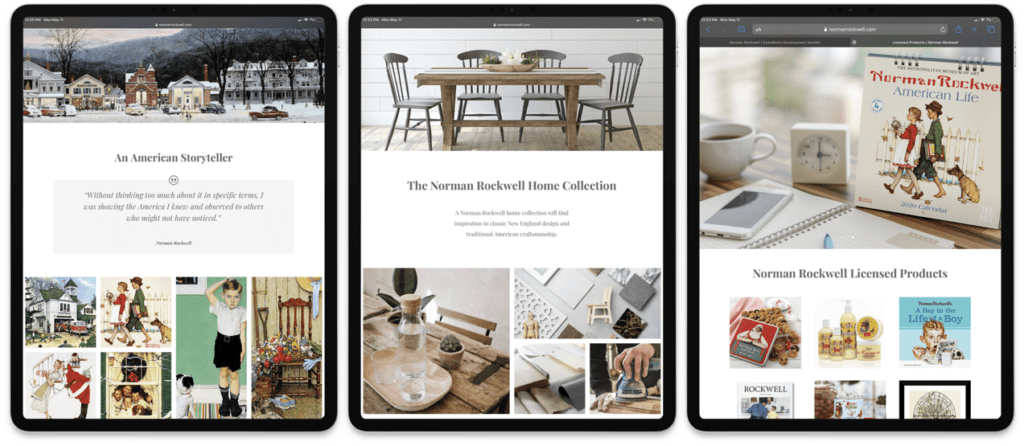
After our sales deck was complete, IMG had us translate the deck to a website, adding more detail about Rockwell and his legacy. There were added drop-down menus with pages showcasing current products and partnerships as well as the variety of potential licensing opportunities. It was a perfect companion to our brand vision, as elegant in design and in many ways even more versatile.
While a lot of brands have consumer-facing websites, it’s not often licensing and partnerships are at the forefront. In our current environment, however, websites are a great place to represent a brand in a clear and concise way, highlighting past successes and future opportunities. They also demonstrate a brand’s commitment to licensing and its partners.

In the end, even in the wake of a crisis, salespeople are still expected to deliver. Hopefully some of these short and long-term marketing strategies will be helpful. And let’s acknowledge the progress we’ve made over the last few months. We’re learning how to juggle our personal and professional lives, which can be extremely difficult in a time of need for so many. Bringing a virtual licensing event together was a major accomplishment — and an important opportunity for our network.


